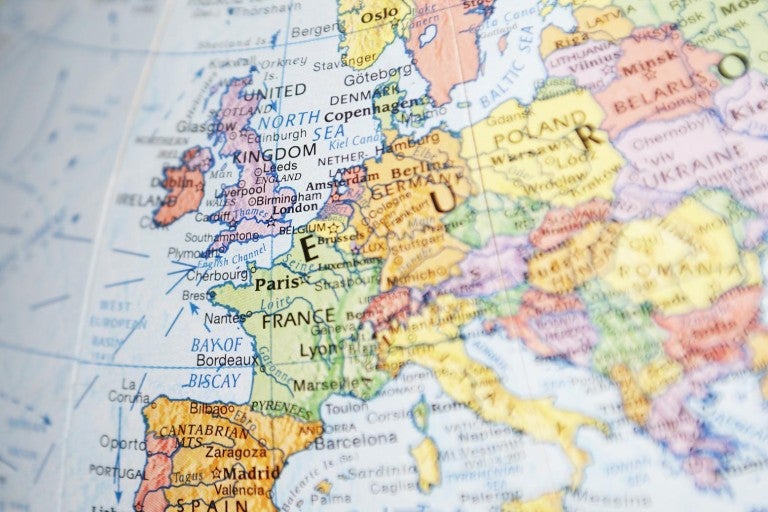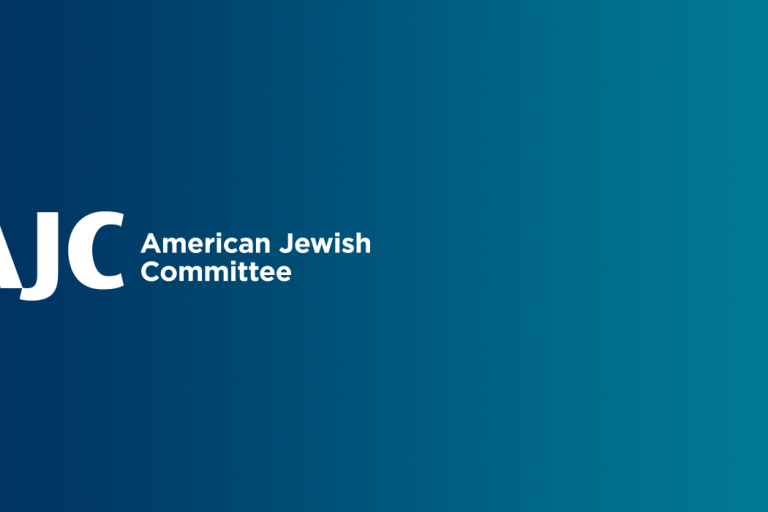April 24, 2019
Volodymyr Zelensky has been elected as Ukraine’s first Jewish president, a significant feat in a country with a long history of Jewish persecution and a short memory when it comes to the Holocaust.
Sam Kliger, AJC’s Director of Russian and Eurasian Affairs since 2003, said the election is a sign that, despite pervasive antisemitic stereotypes, a majority of Ukrainians are willing to take a chance on someone who might set their country on the right path.
“Antisemitism in Ukraine exists in its old ‘traditional’ and cultural form: the notion that Jews control all money, the media and government, they are greedy, murdered Jesus and ‘suck our blood,’” Kliger said. “Yet, in Ukrainian minds, electing a president who is reportedly Jewish is not a problem since people want improvements in their lives and some Jews are better than others.”
Zelensky, a 41-year-old comedian, starred in Servant of the People, a Ukrainian sitcom about a teacher who accidentally becomes president.
The real-life landslide victory, which was even larger than the one on the show, has been hailed as evidence of a robust democracy in the former Soviet Union country, where voters are tired of politicians’ empty promises.
In 1991, AJC became the first Jewish organization to call on U.S. President George H.W. Bush to recognize Ukraine’s independence from Russia. Since then, the organization has staunchly supported a free and democratic Ukraine and its territorial integrity.
Longtime Relationship Between AJC and Ukrainian Leaders
“The general population feels they’ve been lied to repeatedly,” said Rabbi Andrew Baker, AJC Director of International Jewish Affairs. “One political leader after another is going to come in and clean things up. Instead they get mired in corruption themselves. That’s probably the main reason why a character in a sitcom could be taken seriously and actually be elected. It’s certainly not bad news. It signals an acceptance that someone who’s Jewish or has a Jewish background could succeed here.”
In fact, when the Pew Research Center surveyed people in Eastern European countries in March, asking respondents if they would not accept Jews as fellow citizens, Ukraine had the lowest percentage, at 5 percent. By comparison, in Russia, the response rate was 14 percent, Poland 18 percent, Czech Republic 19 percent, and Lithuania 23 percent.
Unlike in other European countries, Jews in Ukraine generally do not face acts of violence or public condemnations of Israel. In fact, Ukraine was part of the minority that voted against the most recent anti-Israel resolution in the United Nations Human Rights Council. But the problems are not limited to antisemitic stereotypes. Ukraine still has not reckoned with its role in the Holocaust. The country continues to resist joining the International Holocaust Remembrance Alliance, the 32-country organization that coordinates international educational efforts.
“It’s been a real challenge to get Ukraine to confront its Holocaust- era past,” Baker said, pointing out that Ukraine’s leaders have been reluctant to admit that the massacres of thousands of Jews, was made possible by active Ukrainian collaboration.
Furthermore, Ukrainian lawmakers have pushed for celebrating some Nazi collaborators as war heroes, choosing to trumpet their anti-Communist battles, while ignoring their complicity in the crimes of the Holocaust.
“The ugly part of it is the glorification of those Ukrainians who cooperated with Nazis in persecuting and murdering Jews during the Holocaust,” Kliger said.
It is unclear whether Zelensky’s election will halt that practice. Baker points out that Ukraine has had a Jewish prime minister for several years and progress has been slow.
Persecution of Jews in Ukraine started centuries before the Holocaust. During 17th Century pogroms, Cossacks murdered entire Jewish communities. The Russian czars also orchestrated pogroms and conscripted Jews to serve in the Russian army.
Almost a million Ukrainian Jews were killed from 1941 to 1944 during World War II and buried in thousands of mass graves, including 34,000 who were executed in a ravine just outside Kyiv known as Babi Yar.
AJC has been instrumental in efforts designed to properly identify and protect these sites and explain to visitors the history of the Jews who are buried there. In Soviet times, if a memorial was erected at all, it would only state that “Soviet citizens” were murdered by “German fascists,” with no reference at all to the Holocaust.
Remembrance in Ukraine
AJC, in partnership with the Polish government, developed the memorial and museum on the site of the Belzec death camp, where half a million Jews, including many from Western Ukraine, were murdered. Belzec is only 15 miles from the Ukrainian border, and today Ukrainian teachers regularly participate in Holocaust education seminars at the museum there.
Last fall, the Jewish Confederation of Ukraine and AJC signed an association agreement to formalize their longstanding, cooperative relationship. Ukrainian Jewish and political leaders have participated in the annual AJC Global Forum for many years, including Prime Minister Arseniy Yatsenyuk in 2015.
Baker said AJC priorities in Ukraine will remain the same, regardless of who is president. AJC will encourage a continuation of the strong relationship with the European Union, the U.S. and Israel, he said. The organization also will continue to press Ukraine to look critically at its Holocaust past, an important step if it is to quash antisemitism in the society at-large.
“We know there are populist nationalist elements in Ukrainian society that are deeply antisemitic,” Baker said, “even if we cannot determine how wide they reach. Hopefully the optimism that comes with a newly-elected forward-thinking president will also serve to push them to the margins.”


